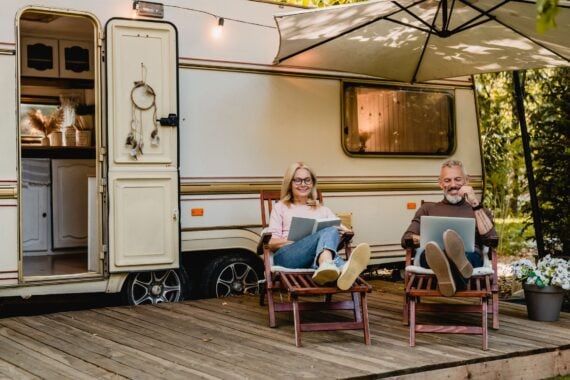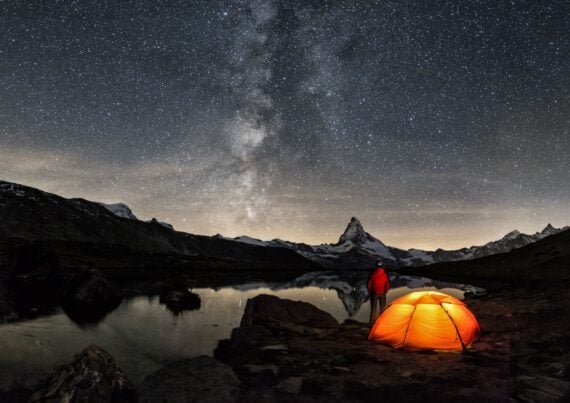If you’re dreaming of getting out of the rat race and retiring early, you may be considering drastic measures — and you aren’t alone. There’s a whole community that will do pretty much whatever it takes to reach their financial goals, called the FIRE movement (which stands for “financial independence, retire early”); RVing stands out as one of the quirkier recurring themes among people talking about ways to reach retirement early.
Related: What It’s Really Like to Retire in an RV
Stay Somewhere for Free
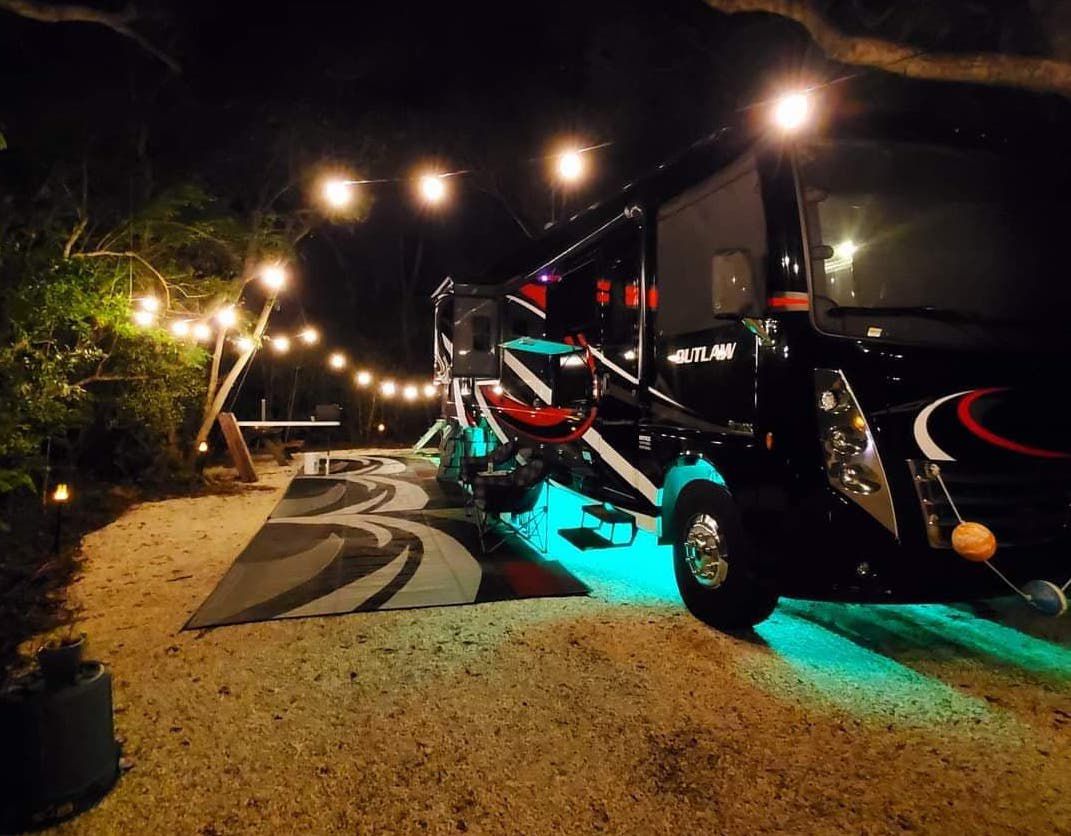
With rent costs skyrocketing, median rent for a U.S. family of four is between $696 to $1,507 monthly. Meanwhile, frugal RVers such as Michelle Morgan of 17857 Marketing pay zero dollars in rent. By volunteering her time at state and national parks, she lives rent free, when means she can work as much or as little as she wants on her own business.
Related: How to Find Places to Boondock or Free Park in Your RV
Live Off the Grid
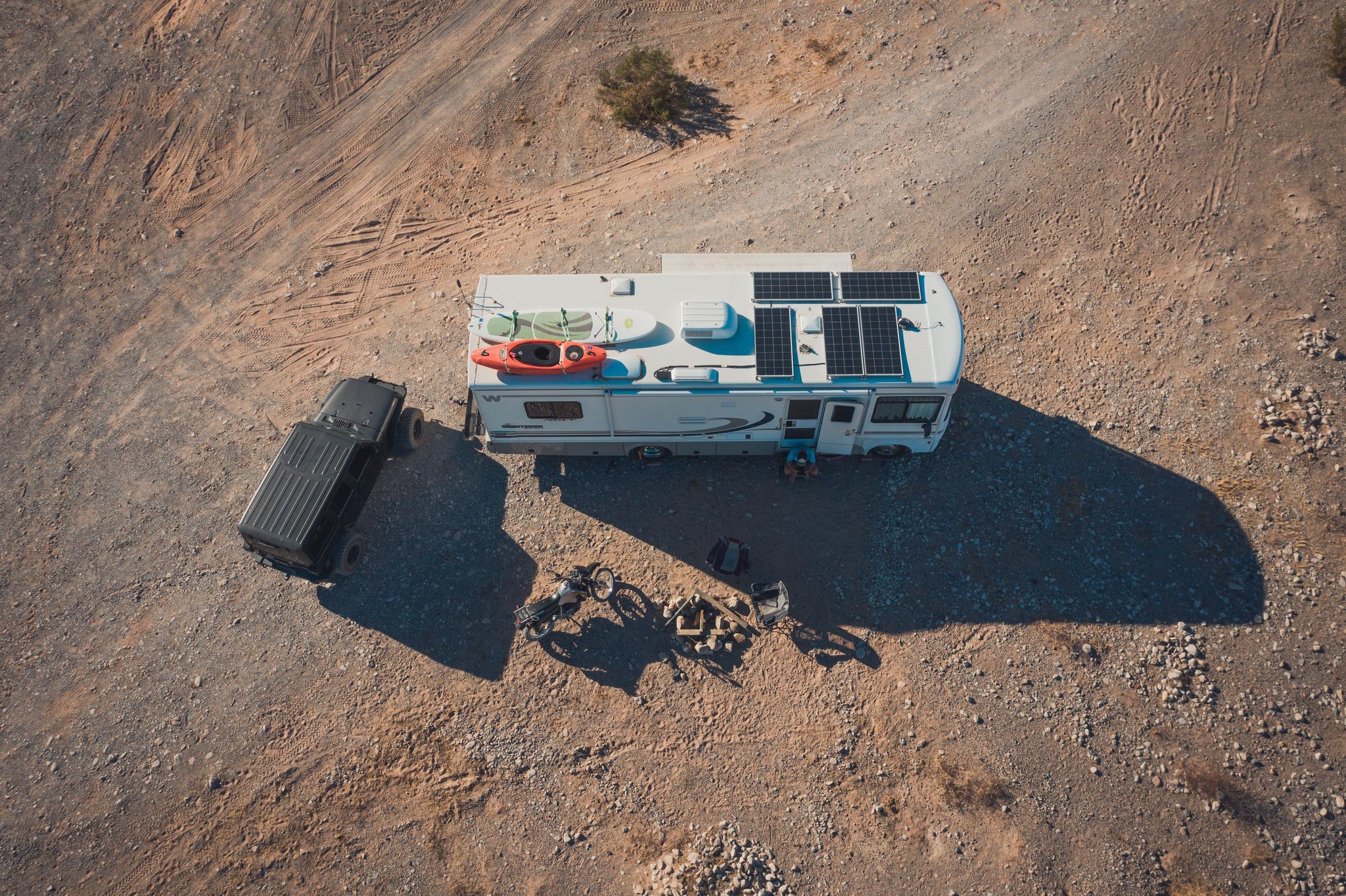
Some RVers have taken living for free to a whole new level. James Vonwiegen and Maddie Cowell of Wanderus Living don’t have to pay a dime for campgrounds or utilities. That’s because they equipped their RV to run entirely off solar power. The solar setup cost $12,000 upfront, but Vonwiegen says it has already more than paid for itself after a year of full-time RV living. RVing has allowed him to amass more than $200,000 in savings at just 24 years old.
Related: 32 RV Accessories to Make Road Life More Luxurious
Save Money on Work-Related Expenses
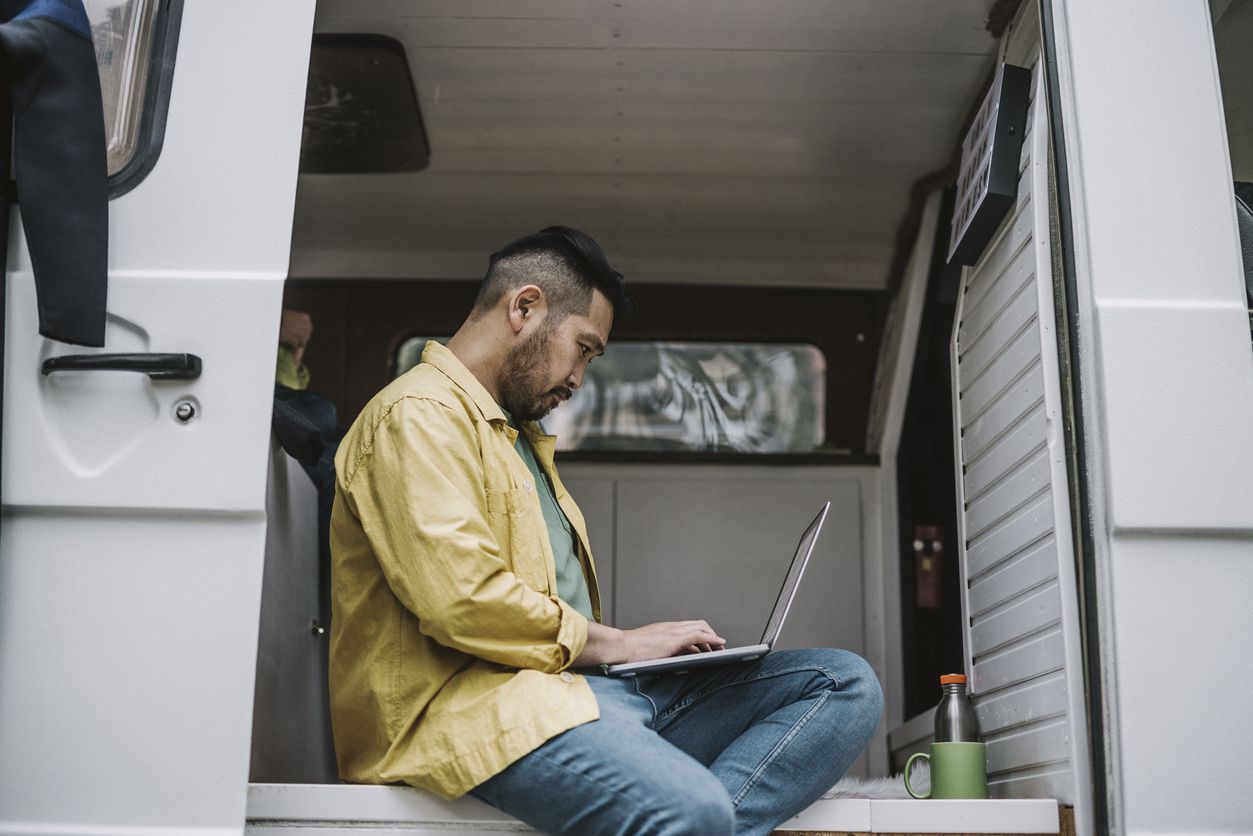
Another way RVers such as Vonwiegen, can save so much is by keeping costs low by working from home (wherever home is that day). Most people have to pay to commute to and from work every day, which also leads to wear and tear on vehicles and the potential for costly repairs. As a digital nomad, Vonwiegen doesn’t have to worry about these expenses. That means more money in his pocket — or retirement account.
Related: How to Earn Money Working From Your RV
Side Hustle During Your Old Commute Time
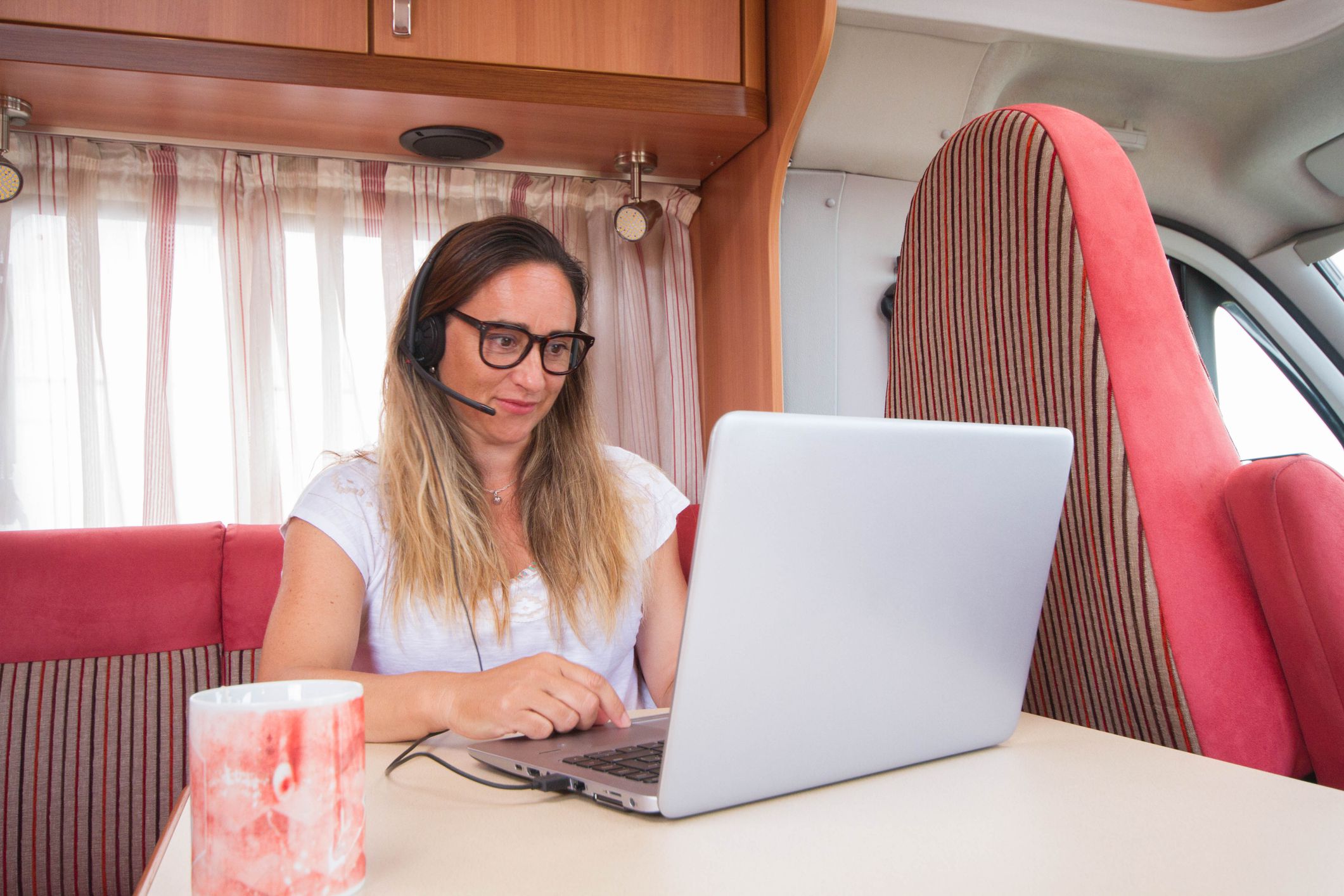
The average one-way commute time is 17 to 33 minutes, depending where you live. For me, pre-RV commute time was nearly an hour one way. Since moving into an RV, I have saved around 10 hours a week on commuting. Now I use that time to provide online speech therapy and earn an extra $3,500 a month. All that money goes straight into my retirement account. In this situation, time literally is money.
Related: Meet the Parents Turning Their RVs Into Classrooms
Be Your Own Boss
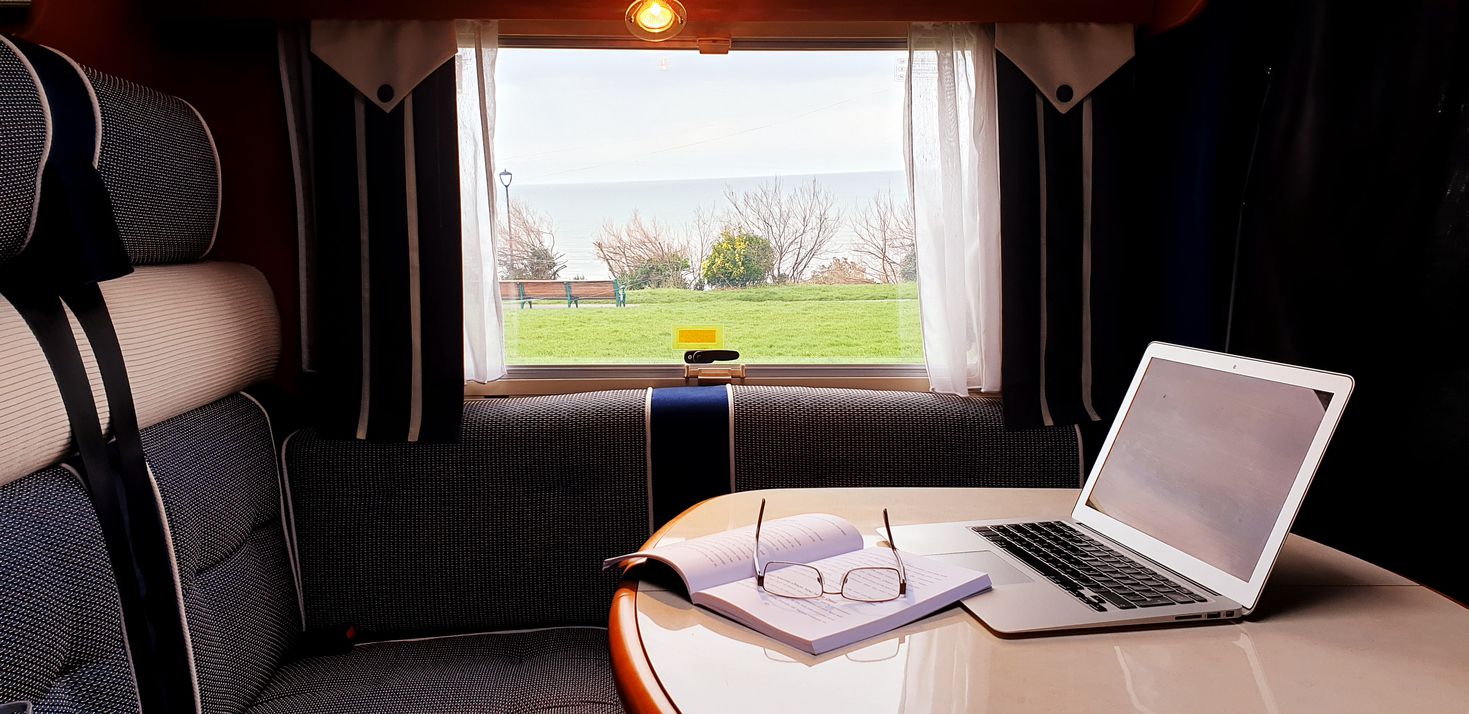
The frugal lifestyles of many RVers allow them to become their own bosses. That’s what Sasha Hutchinson did, turning her stay-at-home mom side hustle into a profitable business: finance printables on Etsy that bring in $4,000 a month. The best part? She has to work only 40 hours. A month. Not 40 hours a week, like the rest of us. Hutchinson says RVing and building her business will allow her to retire when she is 49.
Related: Tax Deductions RV Owners Shouldn’t Ignore
Trending on Cheapism
Lower Costs to Allow for Professional Risk Taking
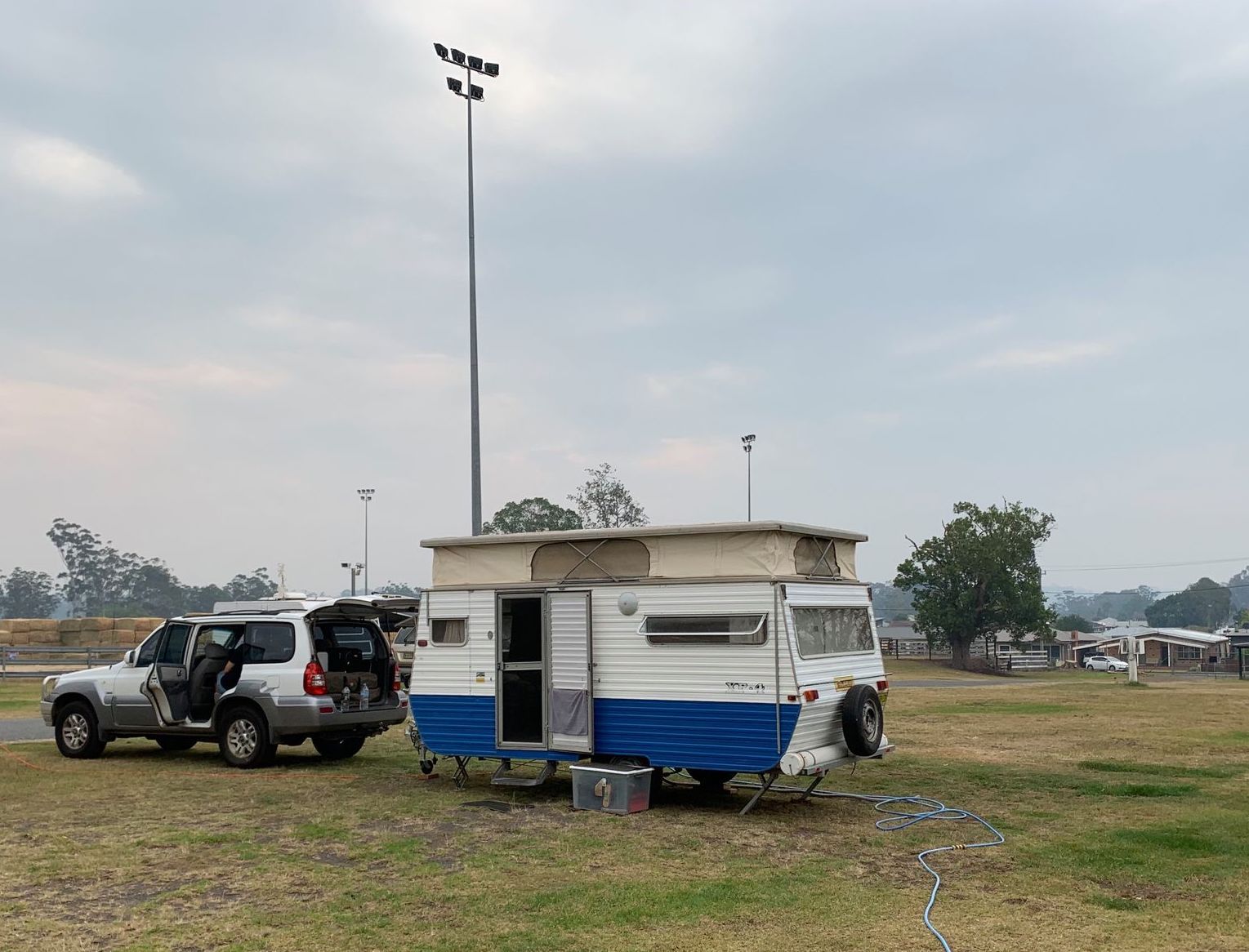
Even if you can’t afford to pay an RV off completely, you can save a lot on housing costs. Michelle Rudge of BenandMichelle.com is a perfect example. Could you live in a 40-year-old travel trailer with no bathroom? Maybe not. But Rudge did, and lowering her living costs let her take risks and pursue her business as a virtual assistant. Now, thanks to that business, she is on the path to early retirement.
Related: 25 Affordable Camper Alternatives for Escaping the Crowds
Use ‘Geo Arbitrage’ to Maximize Income and Minimize Expenses
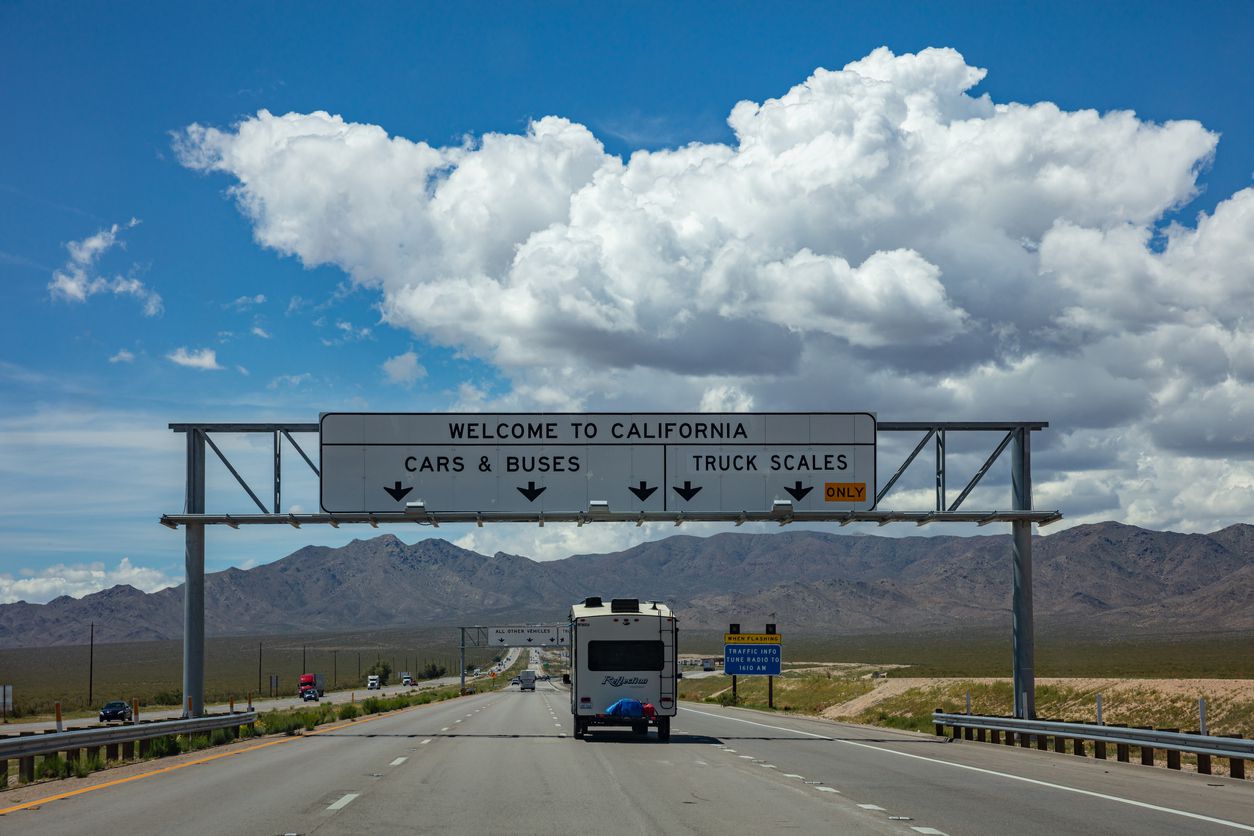
Cost of living can have a major impact on finances. Why not work remotely in a high cost-of-living area and live in a low-cost area? That is what life insurance business owner Matt Ruttenberg does. Moving out of his HCOL area saved him more than $35,000 in housing expenses alone. He uses this “geo arbitrage” to keep his expenses low and his retirement savings high, and RV living allowed him to quit his traditional 9-to-5 job well before age 40.
Related: The Most Expensive Neighborhood in Every State
Own a Home Without Having a Mortgage
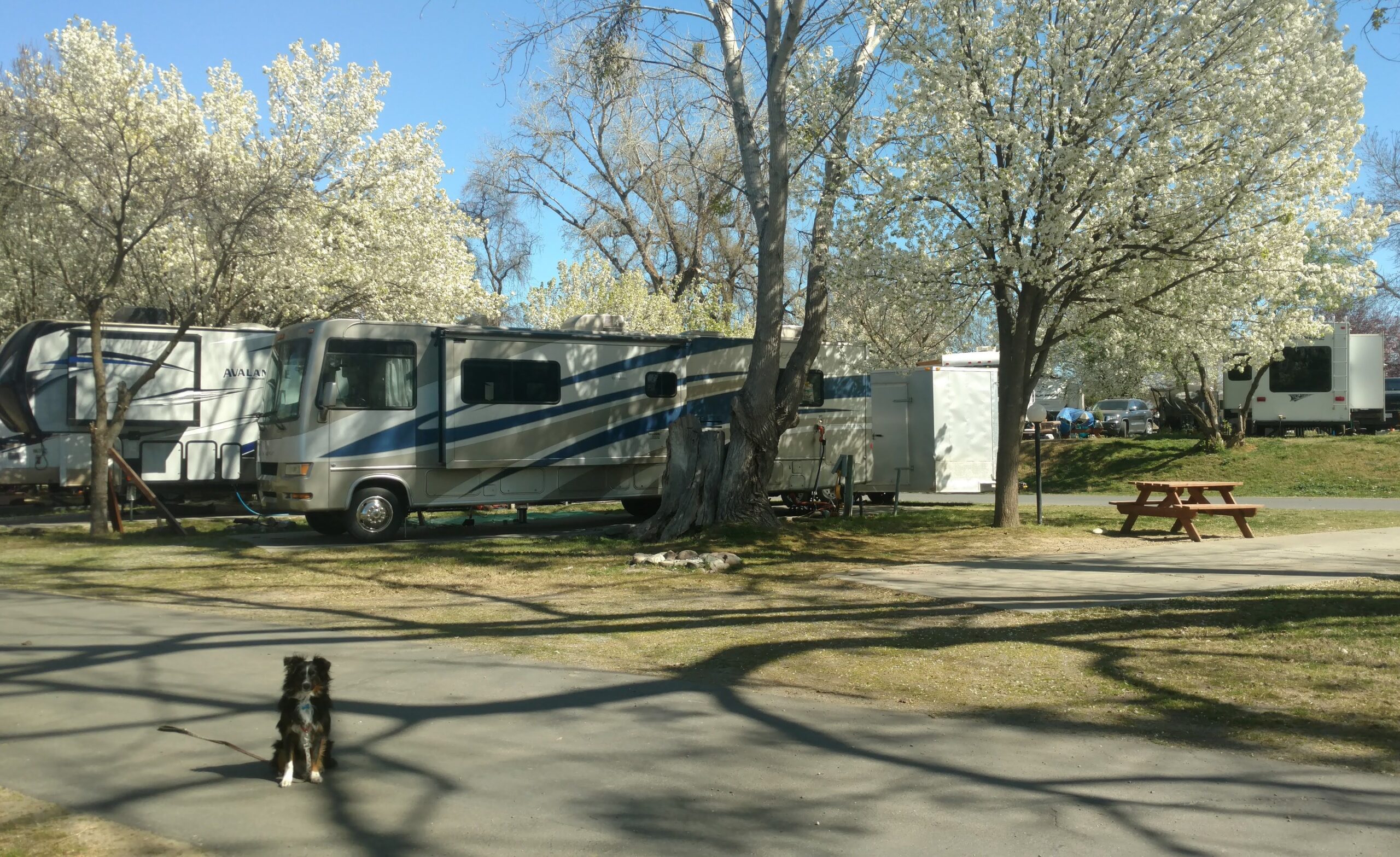
Another way RVing can help you retire earlier is by eliminating mortgage payments. I have a home on wheels with no payments with my husband Joel, and we’ve paid off our RV completely. Now we stay at affordable RV parks for far less than the cost of a mortgage. We love having the comfort of home without the price tag it often brings.
Related: 22 Important Things to Consider Before Buying an RV
Sign up for our newsletter
Stop Lifestyle Creep in Its Tracks
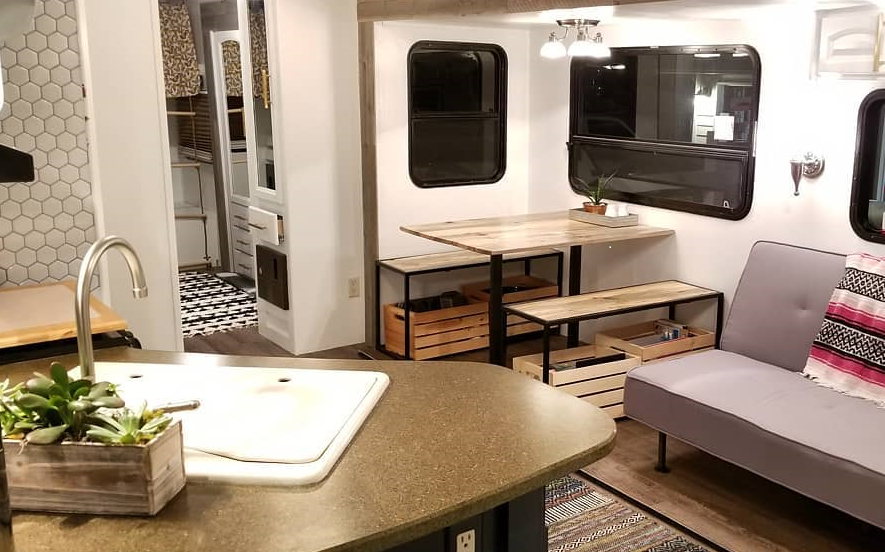
Jacob Wade of Camp Happy RV had it all: a high-paying tech sales job, an enormous house in Seattle, and a lot of stress. He says he had plans to triple the size of his home and mortgage payments before having a revelation and instead selling his house and using the proceeds to full-time RV for a year. Since then he has continued RVing, started his own company, and kept his expenses low. The decision to become an RVer and say no to lifestyle creep could allow a retirement more than 10 years ahead of schedule, he says.
Related: Should You or Shouldn’t You Refinance Your Home?
Spend Less on Home Maintenance
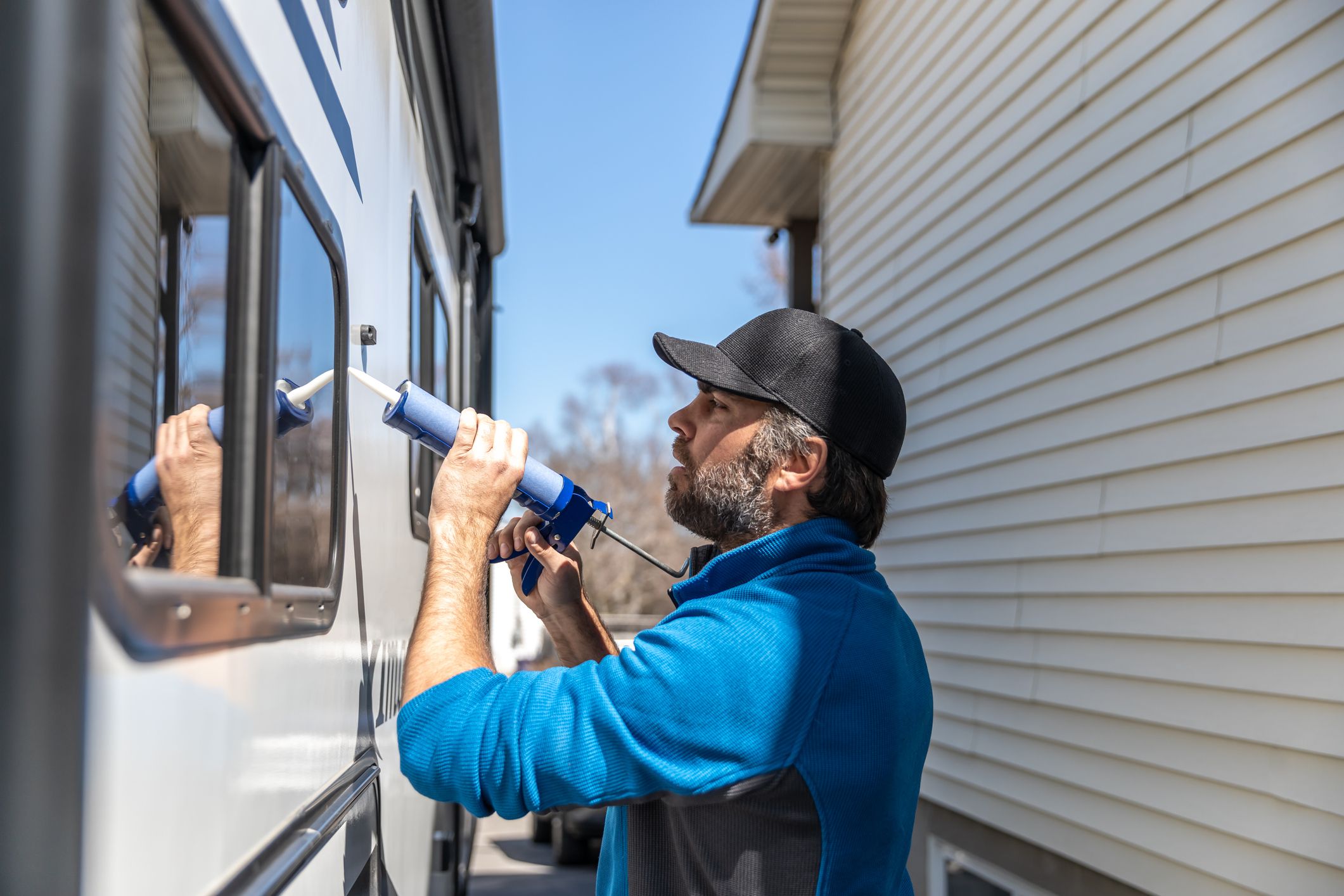
Home repairs are costly expenses full-time RVers don’t have to worry about. According to RV experts, RVers spend an average $117.52 on maintenance in a month. Compare that with the $250 in average monthly HOA fees many homeowners have to fork over — not to mention fixing the roof, replacing the air conditioner, paying for lawn care or snow removal, and so on. Savings in all these areas add up to help budget-savvy RVers retire early.
Related: This Spring Home Maintenance Checklist Could Save You Thousands
Pay Off Debt More Quickly
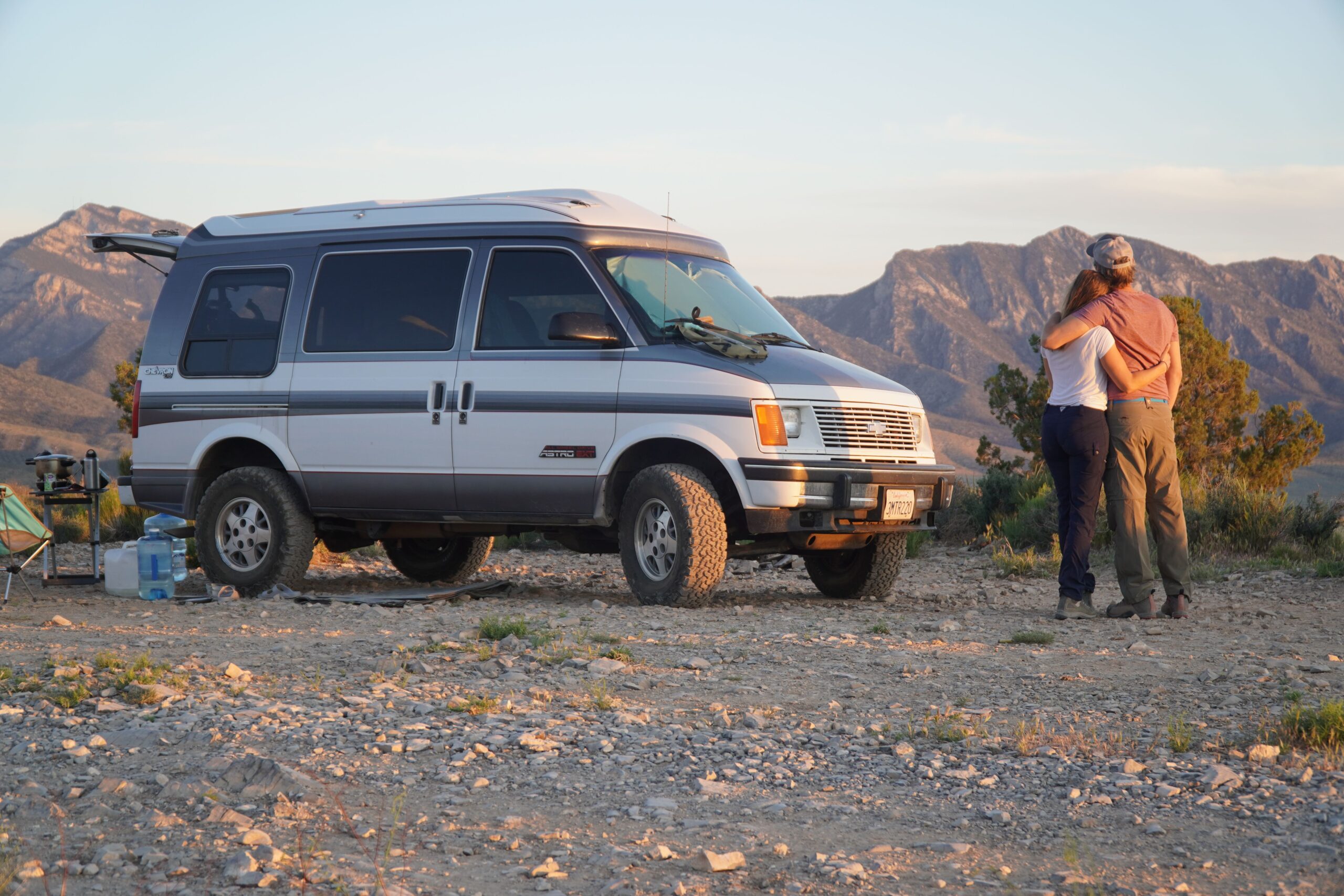
Another way RVers can retire earlier is by eliminating debt. Lowering her housing expenses allowed Kristin Hanes of The Wayward Home to become debt free at 34. She has been living for free in her Chevy Astro minivan for the past five years. That is, when she isn’t cruising around on her sailboat in the Sea of Cortez (also for free). With no debt to pay and low expenses, Kristin can max out her IRA and contribute a significant amount to her 401(k) every year.
Related: Creative Van Conversions to Simplify Life on the Road
Reduce Consumerism
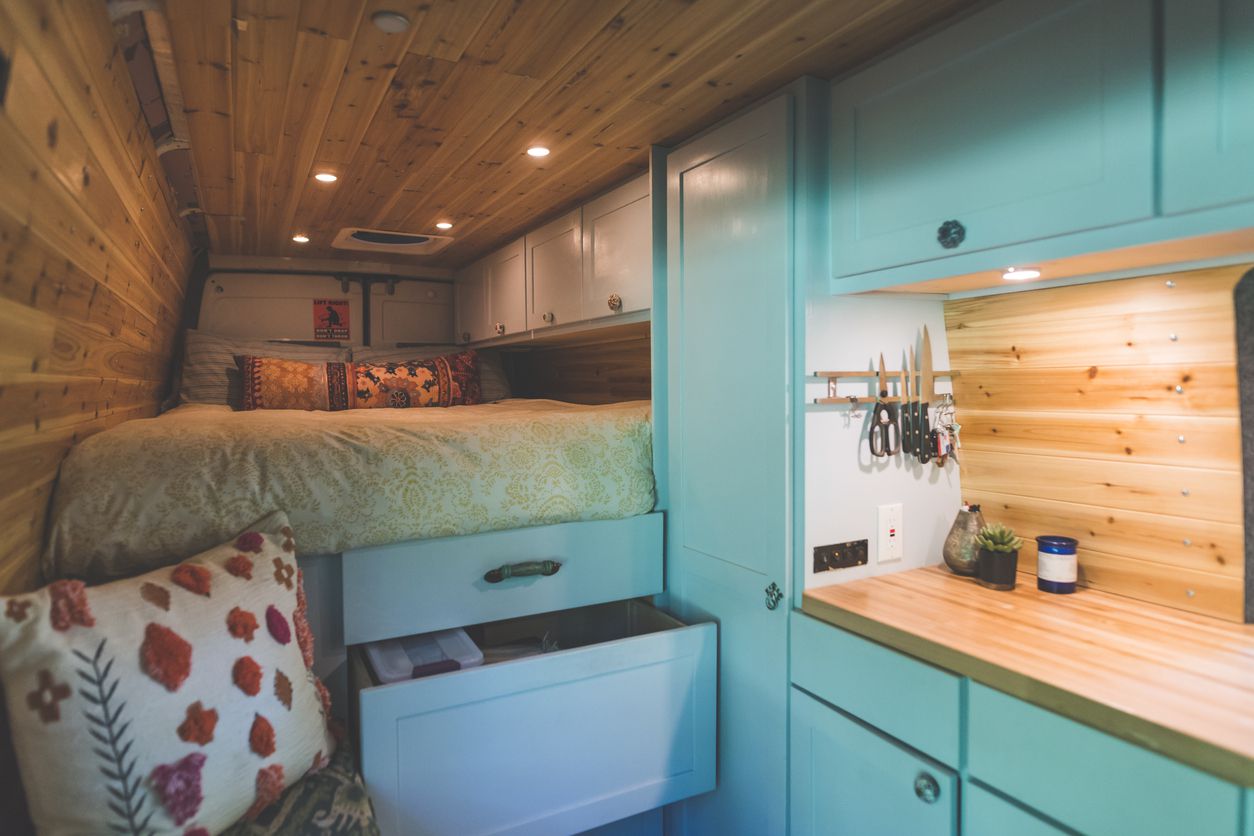
When you live in an RV, it is almost impossible to accumulate a lot of possessions — the small space just doesn’t allow it. This constraint can make budgeting easier. It is a lot tougher to justify making purchases when you have nowhere to put them, after all. Michelle Morgan says that by downsizing she has saved more money while still enjoying day-to-day life.
Related: Gorgeous Teardrop Trailers and Tiny RVs That Will Make You Want to Hit the Open Road
Save Money on Travel
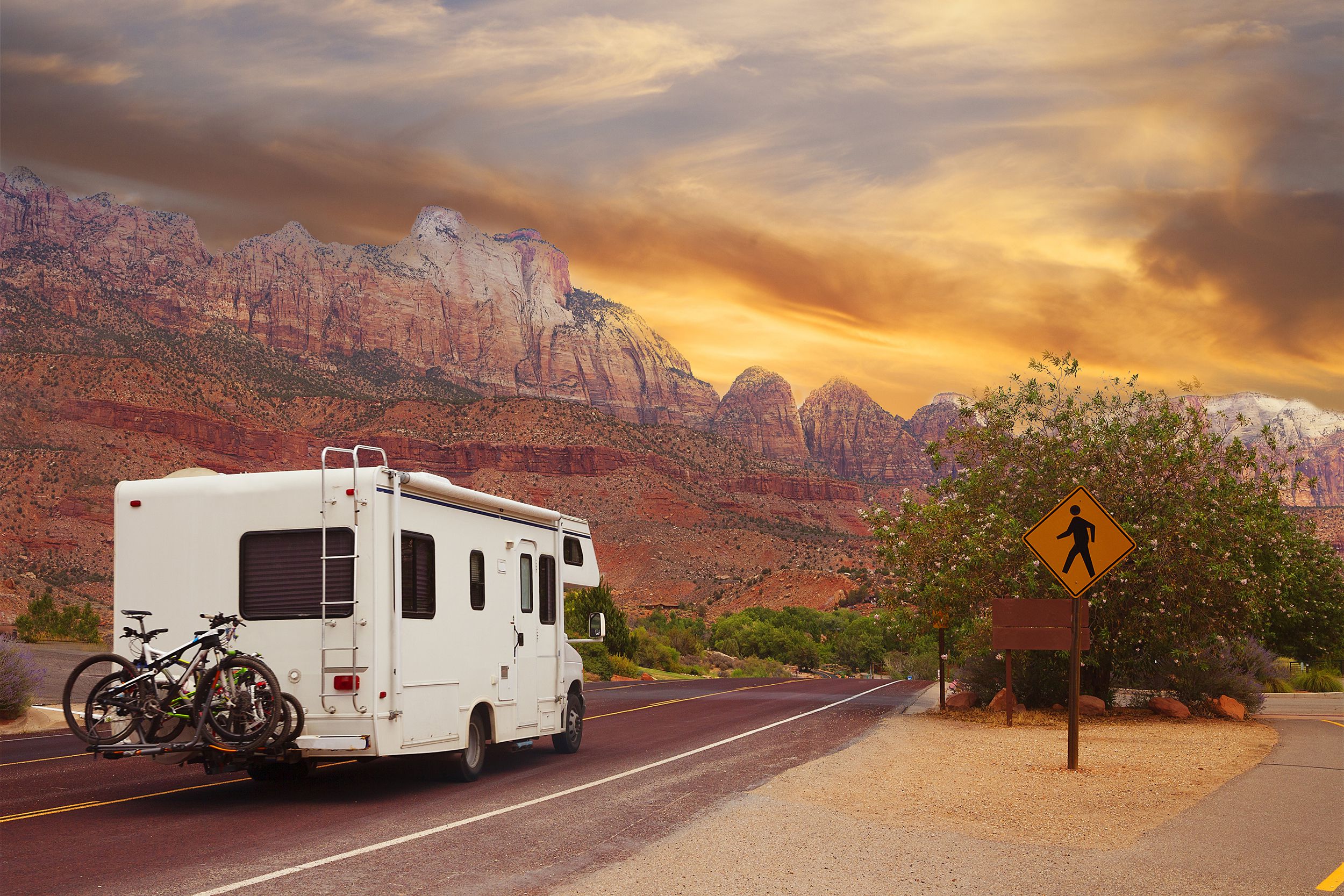
The average American vacation costs $2,000 per person. This means a family of five could spend $10,000 or more on travel in a year, and just think about what that $10,000 could do compounded over the years. Simon Trask, the owner of Possum Kingdom Lake Campground, says that RVing saves him more than $5,000 yearly on travel for his family of five. He is on track to retire by 40, and RVing is helping him get there.
Related: 26 Vacation Spots to Visit in an RV and Save
Turn Your Life Into a Vacation
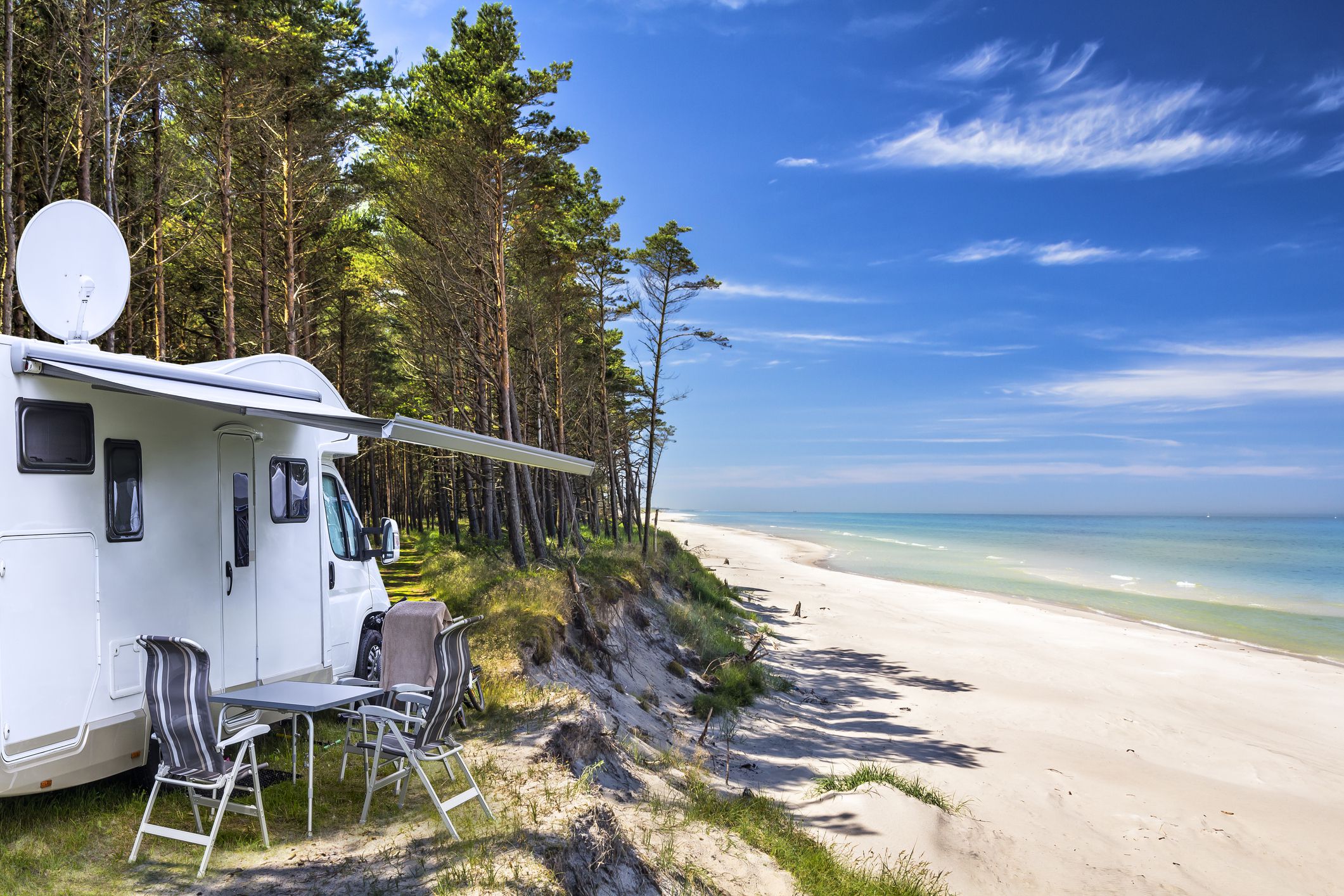
Another way RVers save money on travel: by turning life into a vacation. When your life allows you to live wherever you want to, you don’t have to spend as much on travel. For example, this year, I spent more than two months living within walking distance of the beach, and it cost less than $400 a month in RV park fees. A single night in a comparable hotel could cost just as much or more.
Related: 20 Beautiful Beachside Campgrounds Across America
Maximize Income as a Traveling Health Care Professional
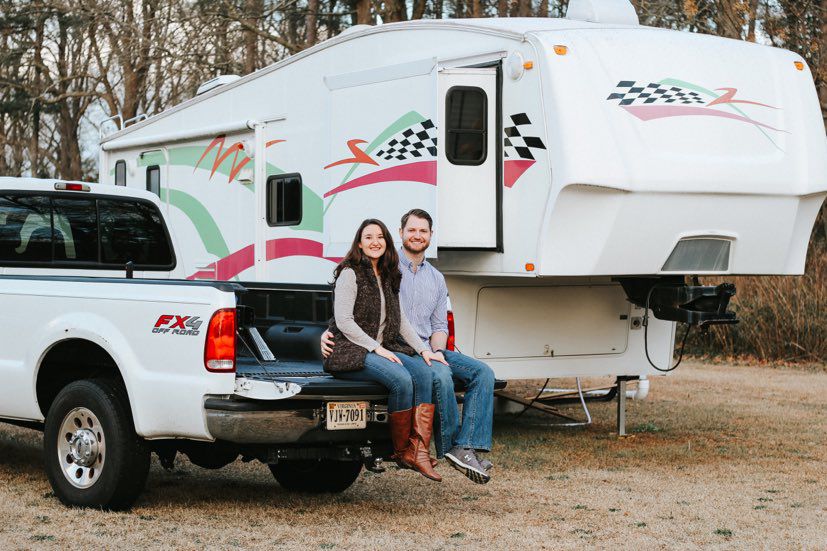
Does tax-free money sound good to you? It is possible and completely legal for many traveling health care professionals. Travel physical therapy mentors Whitney Eakin and Jared Casazza are semi-retired and retired, respectively — and they’re both under 30. They retired early by living out of their fifth-wheel and taking travel therapy contracts to save money. Now they travel the world and work on their blog Fifth Wheel PT so others can follow in their footsteps.
Related: 17 Tips for RVers Riding Out the Coronavirus Pandemic
